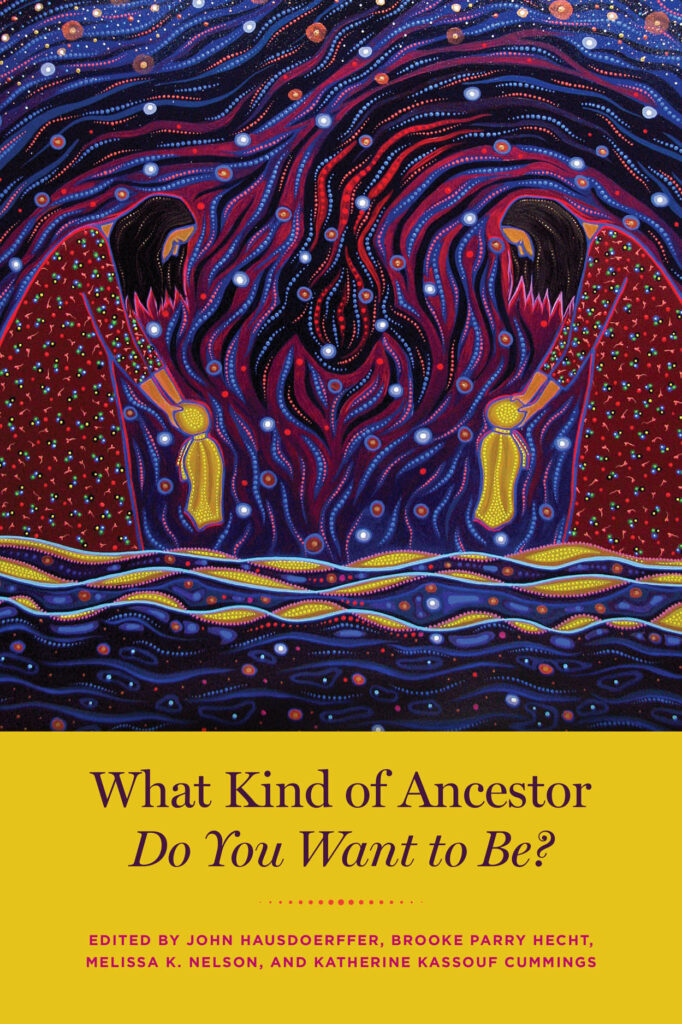
Edited by John Hausdoerffer, Brooke Parry Hecht, Melissa K. Nelson and Katherine Kassouf Cummings
The University of Chicago Press, 2021
248 pages, paperback, $27.50
“What Kind of Ancestor Do You Want to Be?” is a thought-provoking book that encourages readers to consider their impact on future generations and the environment.
This collection presents the idea that we are all ancestors-in-waiting and that the choices we make today will shape the world that our descendants inherit. It draws on insights from Indigenous communities and ecology to suggest that we should approach our role as ancestors with humility, reverence and respect for the natural world.
One of the strengths of the book is the variety of personal stories, interviews, philosophical insights and scientific data that is woven together within its pages from the many collaborators who are pondering this same question. Besides the actual poems included within, there is a poetic tone that carries throughout the book making it pleasant to read even when dealing with some of the heavier aspects of our current time.
In Enrique Salmón’s contributed essay, the author of “Iwígara: American Indian Ethnobotanical Traditions and Science,” which was reviewed in the spring 2022 issue of The MOF&G, states he wants to be the kind of ancestor that is known to the Earth as a friend. Salmón offers a practice he gives to his students for knowing a place and connecting to it: visit it weekly at sunrise or sunset, use all one’s senses to take it in, notice its changes, one’s feelings and so on. Of course, land and place are important to what kind of ancestor people want to be and how people connect with their ancestors. Winona LaDuke tells us to care for the place we know so those that follow can live there too. Lindsey Lunsford’s poignant essay repeats her desire to leave a place to sit in the world — land — to the children of tomorrow as her grandparents left to her. Even within this though she writes of the horrors that have happened to Black people, her people, that have left so many displaced and without land or such a place to pass on.
Corn is mentioned in more than one essay as an ancestor. Kaylena Bray writes with veneration about the relationship between farmers and corn, and about saving their seeds as a way to remain sovereign. Rowen White, founder and creative director of Sierra Seeds from the Mohawk community of Akwesasne, begins her piece in her cornfield and goes on to weave stories of seeds and her prayer that her ancestral legacy will be “that of a seed song sung from the mouths of her grandchildren that know no hunger.”
Overall, “What Kind of Ancestor Do You Want to Be?” is a timely and important book that encourages us, from many different views and voices, to think beyond our own lifetimes. Picking a line to summarize the book from Lyla June Johnston’s poem “Time Traveler,” “It’s not about you. It’s not about you. It’s about the song that is traveling through.” May we all consider the impact of our choices on future generations and thoughtfully consider the themes of this book.
Denise DeSpirito, Of the Spirit Herbals, Rockland, Maine
